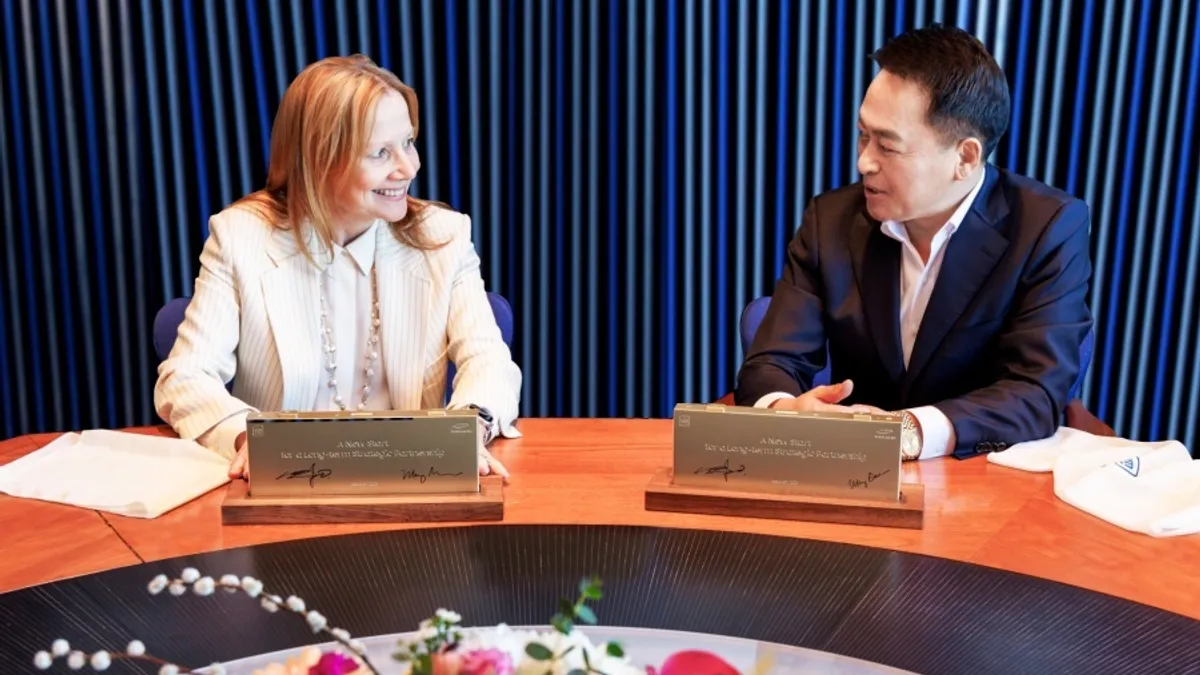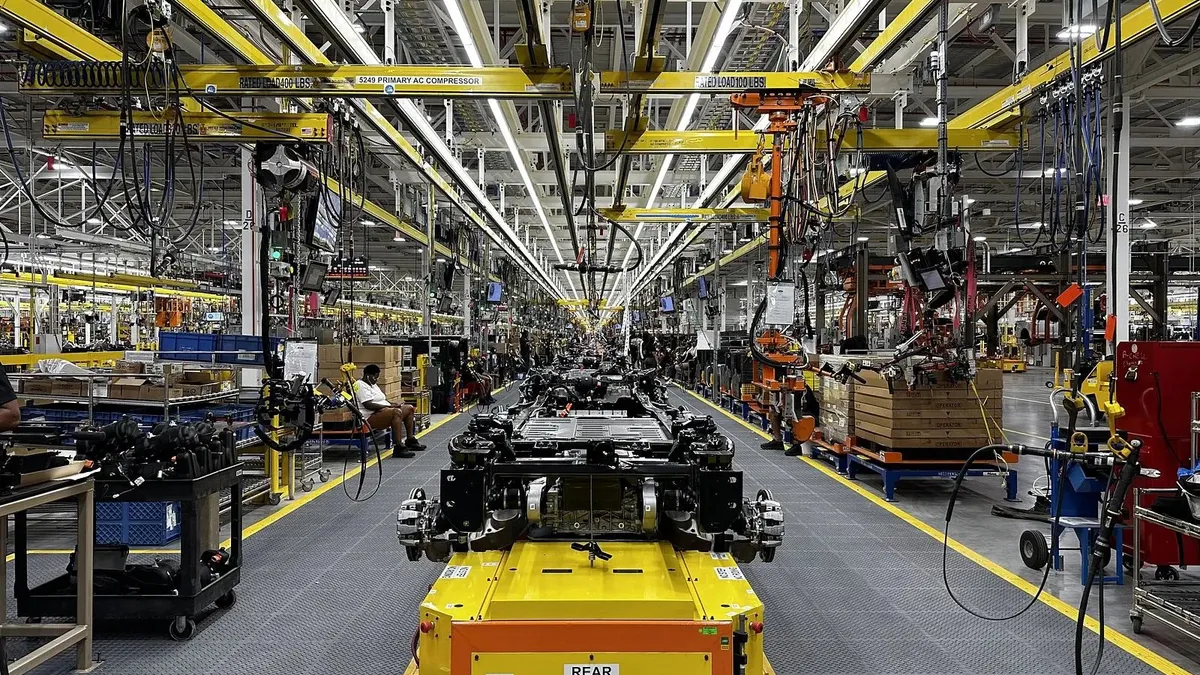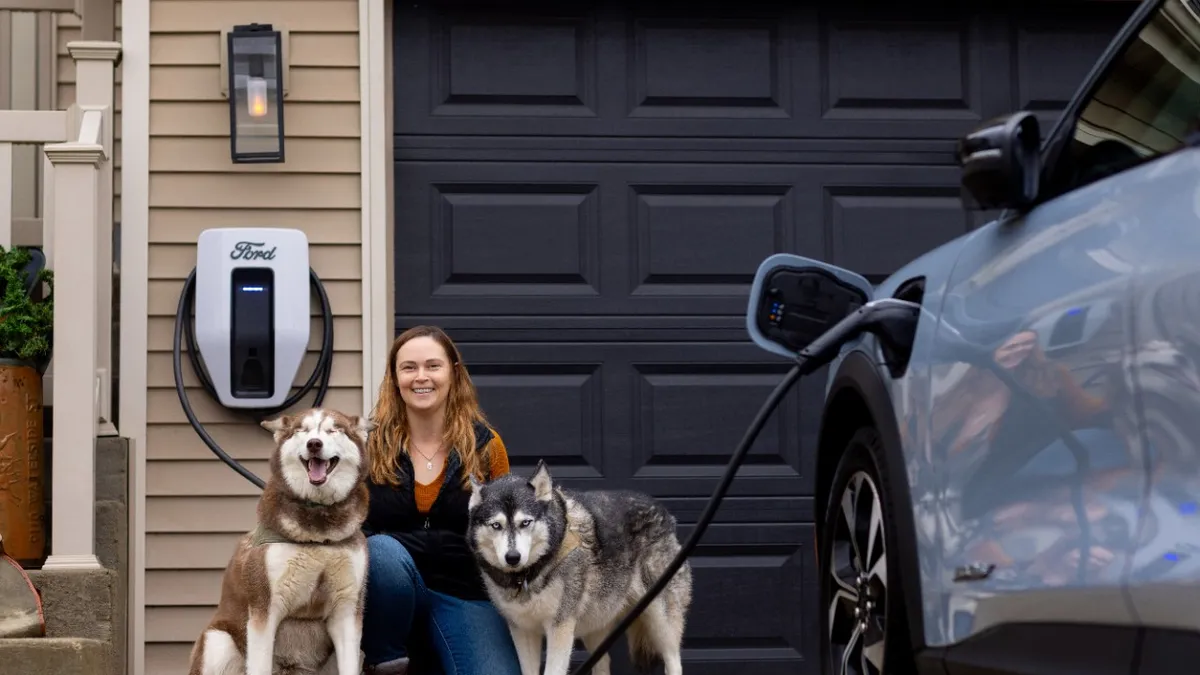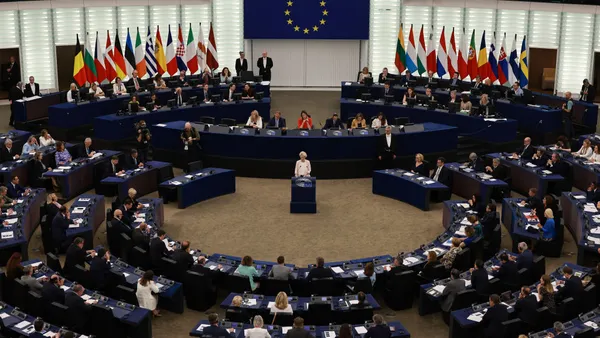Dive Brief:
- General Motors Co. and Samsung SDI finalized a previously announced joint venture on Wednesday for their $3.5 billion electric vehicle battery manufacturing plant, according to a press release.
- The New Carlisle, Indiana, factory, which will employ 1,600 people, is expected to begin production in 2027, a year later than anticipated.
- The facility will manufacture batteries to be deployed in upcoming GM EVs. It will initially have an annual production capacity of 27 gigawatt hours, and will expand up to 36 GWh.
Dive Insight:
The decision to finalize the joint venture comes as automakers reassess their position in the EV market, and the investments they’ve made.
GM and Samsung SDI have been “closely monitoring the rapidly changing market conditions,” the release said, yet remain committed to the market’s growth and have “decided to invest in the joint venture to stay aligned with the market pace.”
During the automaker’s Q2 earnings call, CEO Mary Barra said she believes GM is in a strong position within the EV market, citing continued consumer demand and its expanding portfolio, including the 2025 Chevrolet Equinox EV and the upcoming next-generation Chevy Bolt.
“I think our EVs have beautiful designs, the right range, the right performance,” she said.
Meanwhile, the company has also been cutting battery costs as its Ultium Cells joint venture with LG Energy Solution ramps up. CFO Paul Jacobson said GM has been able to drive down its average cell cost by $30 per kilowatt hour, and he anticipates further reductions in the second half of the year.
GM previously stated once the Samsung SDI joint venture is at full production, its total U.S. battery cell capacity is projected to be roughly 160 GWh. The automaker’s Ultium EV platform is designed to accept multiple cell form factors and chemistries, Manufacturing Dive reported.
While Barra restated the company’s confidence in and commitment to EVs, GM has also made moves to lower its expectations for the vehicle segment throughout 2024. The automaker now expects to produce a maximum of 250,000 EVs in 2024, down from the up to 300,000 predicted earlier this year, and has told Automotive Dive it is opting to stay flexible before publicizing a new 2025 target.
Eric Walz contributed to this story.












